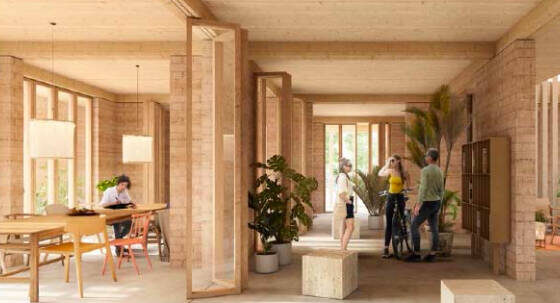The Valencia Department of Housing has embarked on its first sustainable construction projects focused on energy efficiency criteria. These initiatives are part of a plan to develop 2,400 new homes within five years by utilizing unused public land. To kickstart this plan, the department will construct three pioneering pilot projects in Valencia, Castellón, and Alcoy (Alicante), which will be financed by the European Union’s Next Generation program.
In Castellón, the winning proposal features sustainable homes that incorporate energy efficiency, spaciousness, and openness. The design is based on the creation of multipurpose and communal apartments that can adapt to the needs of the residents. The aim is to provide an open, adaptable living environment that promotes sustainable living.
Meanwhile, the Valencia development will consist of 18 homes, and the building will include four communal areas: the ground floor, the roof, the landings, and a shared lounge. The roof has been designed as a productive space that features urban gardens for food production and solar panels to generate energy. The project is a perfect example of how modern sustainable housing can be designed to maximize the use of available resources while providing residents with a high-quality living environment.
In Alcoi (Alicante), the chosen location is a plot owned by the Valencia Land and Housing Agency (EVha) in the historic center of the city. The winning proposal, called “48 to distribute,” aims to promote concepts of flexibility and quality of life. To maintain homogeneity with the environment, the proposal suggests a building for 13 homes and two volumes of 130 to 100 square meters of surface area on each of its six floors to achieve “maximum optimization of the buildable volume.” One of the pillars of the proposal is the creation of a large interior courtyard to enhance the synergies of ‘community.’ At the same time, this area is a leading part of the building’s bioclimatic strategy.




